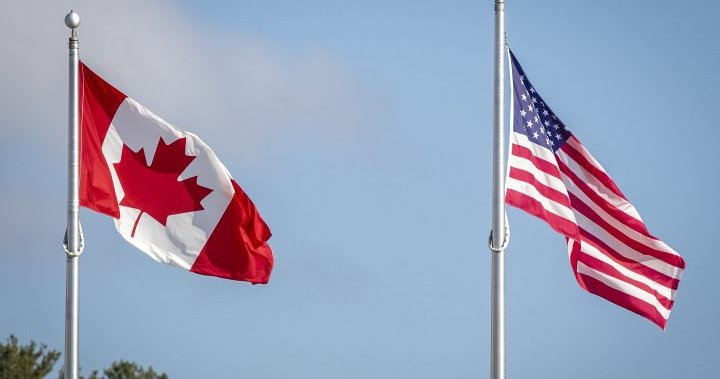The Supreme Court of Canada ruled on Friday that the Safe Third Country Agreement between Canada and the United States is constitutional. In its decision, the Court stated that the agreement does not violate Section 7 of the Canadian Charter of Rights and Freedoms, which guarantees the right to life, liberty, and security of a person. The Safe Third Country Agreement, which has been in effect since 2004, recognizes both Canada and the U.S. as safe places for migrants to seek protection.
Under the agreement, migrants are required to seek asylum in the first country they arrive in, making it illegal to cross the border and seek asylum in the other country. Opponents of the treaty argued that the legislation supporting the agreement violates the rights of asylum seekers, as the U.S. is not actually a safe country for many of them.
The Canadian government, however, argued that returnees have access to fair asylum and detention processes in the U.S. The Court determined that the challengers must demonstrate a causal connection between the harms experienced by asylum claimants and the actions of the Canadian state. The Court also recognized the risks faced by refugees but stated that there are safety valves in place within the legislation.
Refugee advocacy groups, such as the Canadian Council for Refugees and Amnesty International, expressed disappointment with the Court’s decision and called on the government to withdraw from the agreement. They argue that the U.S. is not a safe country for refugees, and sending them back there violates their rights under domestic and international law.
Immigration Minister Sean Fraser emphasized Canada’s commitment to refugee resettlement and called for the promotion of regular migration pathways and orderly management at the border to maintain Canada’s position as a world leader in refugee resettlement.
In March, Prime Minister Justin Trudeau and U.S. President Joe Biden agreed to expand the Safe Third Country Agreement to apply along the entire shared border, not just official crossings. This move closed a loophole that allowed asylum seekers to make claims in Canada even if they arrived in the U.S. first between official border points.
The Supreme Court’s decision brings an end to a long-standing legal battle initiated by refugee claimants in 2007. The Canadian Council for Refugees, the Canadian Council of Churches, and Amnesty International were also involved in the proceedings. Previous challenges to the agreement were successful, but later overturned by higher courts.
Critics argue that the agreement contradicts the Charter of Rights and Freedoms, as it exposes individuals to detention and other rights violations upon their return to the U.S. The Federal Court of Appeal, however, overturned a 2020 decision by the Federal Court that found the agreement to be in violation of the Charter.
Prior to the agreement’s extension to the entire border, Canada received a significant number of refugee claims from irregular border crossers. The expansion of the agreement has effectively eliminated unofficial border crossings as options for potential asylum seekers.
Amnesty International has voiced concerns over the updated agreement, stating that it creates a more dangerous and unjust situation for people seeking asylum in Canada.
Overall, the Court’s decision, while disappointing to advocates for refugee rights, upholds the constitutionality of the Safe Third Country Agreement and maintains the current processes for asylum seekers between Canada and the U.S.
Denial of responsibility! VigourTimes is an automatic aggregator of Global media. In each content, the hyperlink to the primary source is specified. All trademarks belong to their rightful owners, and all materials to their authors. For any complaint, please reach us at – [email protected]. We will take necessary action within 24 hours.


